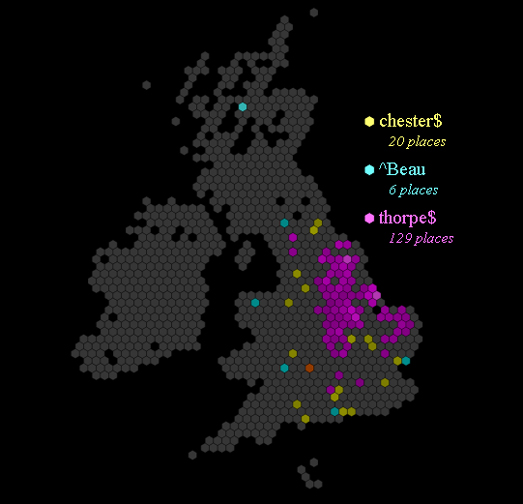Meres, Lochs & Llyns
This week in Twittens, Ginnels and Jitties I spent a little time exploring the regional variations in the names given to alleys and narrow walkways in the UK. Of course it isn't just alleyways which get called different things in different parts of the country. Geographical features such as mountains and lakes can also be named different things deoending on where you are in the UK.
The three maps above show the locations of lochs, meres and llyns in the UK. 'Loch', 'Mere' and 'Llyn' are just three of the many different words that mean 'lake' in the UK. As the three maps above show the use of each of these three individual words for 'lake' is fairly geographically restricted to distinct areas of the UK. 'Loch' is almost exclusively used in Scotland in the placenames of lakes (there is a Lochvane in Wales but that doesn't seem to be related to a lake). The Welsh word for 'lake' is 'llyn' and unsurprisingly the distribution of placenames containing the word 'llyn' shows that the vast majority are in Wales. A 'mere' is a lake. However in the UK placenames containing the word 'mere' appear to be almost exclusively restricted to England.
I created these three maps showing the distribution of 'loch', 'mere' and 'llyn' in UK placenames using the new Placename Heatmap tool. This impressive map can visualize the distribution of different words, prefixes, or suffixes in placenames used in the UK. The tool uses data from the Ordnance Survey. Using the map you can explore lots of different geographical patterns in UK placenames, often determined by those who have settled in or conquered different parts of the UK in its long history..




Comments